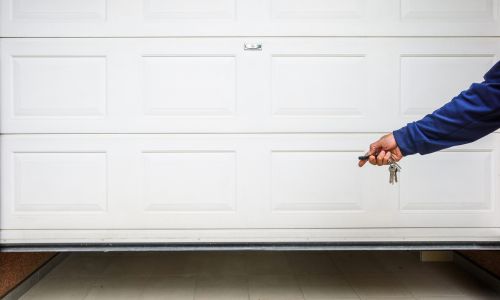Garage doors are one of the most overlooked components of a home—until something goes wrong. In a suburb like Leichhardt, where residential density and changing weather conditions create added strain on home infrastructure, garage door maintenance isn’t just a suggestion—it’s essential.
This article walks you through a complete checklist to keep your garage door functioning smoothly and safely. From subtle early warning signs to choosing the right technician, here’s everything you need to know to avoid costly surprises.
Why Leichhardt Garage Doors Need Extra Attention

Leichhardt’s unique environment means homeowners face several garage door stressors that aren’t always obvious at first glance. As such, timely garage door repair in Leichhardt becomes more of a necessity than a luxury, especially with the ongoing exposure to urban wear and seasonal challenges. For guidance on local servicing options, you can explore solutions such as garage door repair Leichhardt services.
Local climate and urban exposure
High usage in residential zones
With narrow driveways, smaller lots, and many homes using garages for both cars and storage access, the typical garage door sees high-frequency use. This daily repetition wears down rollers, hinges, and especially the opener motor.
Delaying repairs leads to higher risks
It’s tempting to ignore a minor noise or hesitation, but that decision can snowball into bigger problems. Malfunctioning doors pose security threats, delay your commute, and often result in more expensive repairs than if the issue had been addressed early.
Step 1: Listen to Your Door’s Noises
Grinding, squeaking, and popping sounds
Why silence is never normal

Step 2: Check Visual Signs of Misalignment
Uneven gaps or slanted tracks
Cracks in panels or bent hinges
Step 3: Test the Door’s Movement and Balance
Perform a manual open-close test
Check for spring tension and cable condition
Step 4: Inspect the Motor and Opener System
Delayed opener response or flickering lights
Audible motor strain or irregular stopping
Step 5: Review Safety Features and Sensors
Test sensor alignment and auto-reverse
Check manual release and emergency access
Step 6: Clean and Lubricate Key Components
Use silicone spray or lithium grease
Clear dirt and debris from the tracks
When to Call a Technician: Signs You Shouldn’t Ignore
Broken springs or loud snaps
Doors that won’t open or close at all
Cost of Garage Door Repairs in Leichhardt

Common repair price ranges
Emergency and after-hours service rates
Choosing the Right Garage Door Repair Service
Licensing, insurance, and certifications
Local experience and customer feedback
Final Tips: Keep Your Door in Top Shape All Year
Seasonal inspection reminders
Schedule professional servicing annually
Book a trusted Locksmith
Call a trusted locksmith for quick, professional lock repairs, key replacements, rekeying, and emergency lockout assistance, available every day of the week to assist you.
FAQs
Frequently Asked Questions
Unusual noises such as grinding or squeaking, uneven door movement, or slow response times are early indicators. You may also notice delays in opening, bouncing upon closure, or flickering lights on the opener.
Garage doors should be professionally serviced at least once per year. For high-use systems, such as those in busy households or commercial properties, biannual inspections are recommended.
No. Torsion springs are under extreme tension and can cause serious injury or property damage if mishandled. Always contact a trained garage door technician for spring repairs or replacement.
Yes. Many local providers offer same day garage door repair Leichhardt services for urgent situations. Availability may depend on the time of day and the severity of the issue.
If your opener is over 10 years old and shows recurring problems—such as unresponsiveness, excessive noise, or intermittent failure—replacement is often more economical in the long term. Modern systems also offer better safety and smart-home compatibility.
Costs range from $400 to $1,200 depending on brand, horsepower, and features such as Wi-Fi connectivity or battery backup. Labor and installation fees may vary based on accessibility and wiring conditions.
Choose someone with proper licensing, insurance, and strong customer feedback. A trustworthy technician should provide clear pricing, a written estimate, and be willing to answer your questions.
Sticking may result from bent tracks, worn rollers, broken springs, or lack of lubrication. Dirt and rust can also interfere with smooth motion, especially in older systems.
Yes. Humidity, salt air, and temperature swings in Leichhardt contribute to corrosion, wood expansion, and electronic sensor malfunction. Weather seals should be inspected and replaced as needed.
Residential doors are typically lighter and manually operated or single-motor driven. Commercial systems are larger, heavier, and may use multiple motors or complex lift systems—requiring specialized equipment and expertise.
Routine maintenance helps detect wear early, reduces the likelihood of breakdowns, extends the door’s lifespan, and improves safety. Lubrication, balance checks, and sensor calibration are vital for long-term efficiency.
With regular maintenance, a quality garage door can last 15 to 30 years. Openers generally last 10 to 15 years, while springs and rollers may require replacement every 5 to 10 years.
Not necessarily, but automated systems have more components—such as sensors, motors, and remotes—that can fail. Regular inspections help prevent issues.
A loud bang may indicate a broken spring. Do not attempt to open or repair the door yourself. Disconnect the opener and call a technician immediately for safety.
Yes, in most cases. However, the door must be structurally sound and compatible with the chosen opener. A professional can assess compatibility during an inspection.

